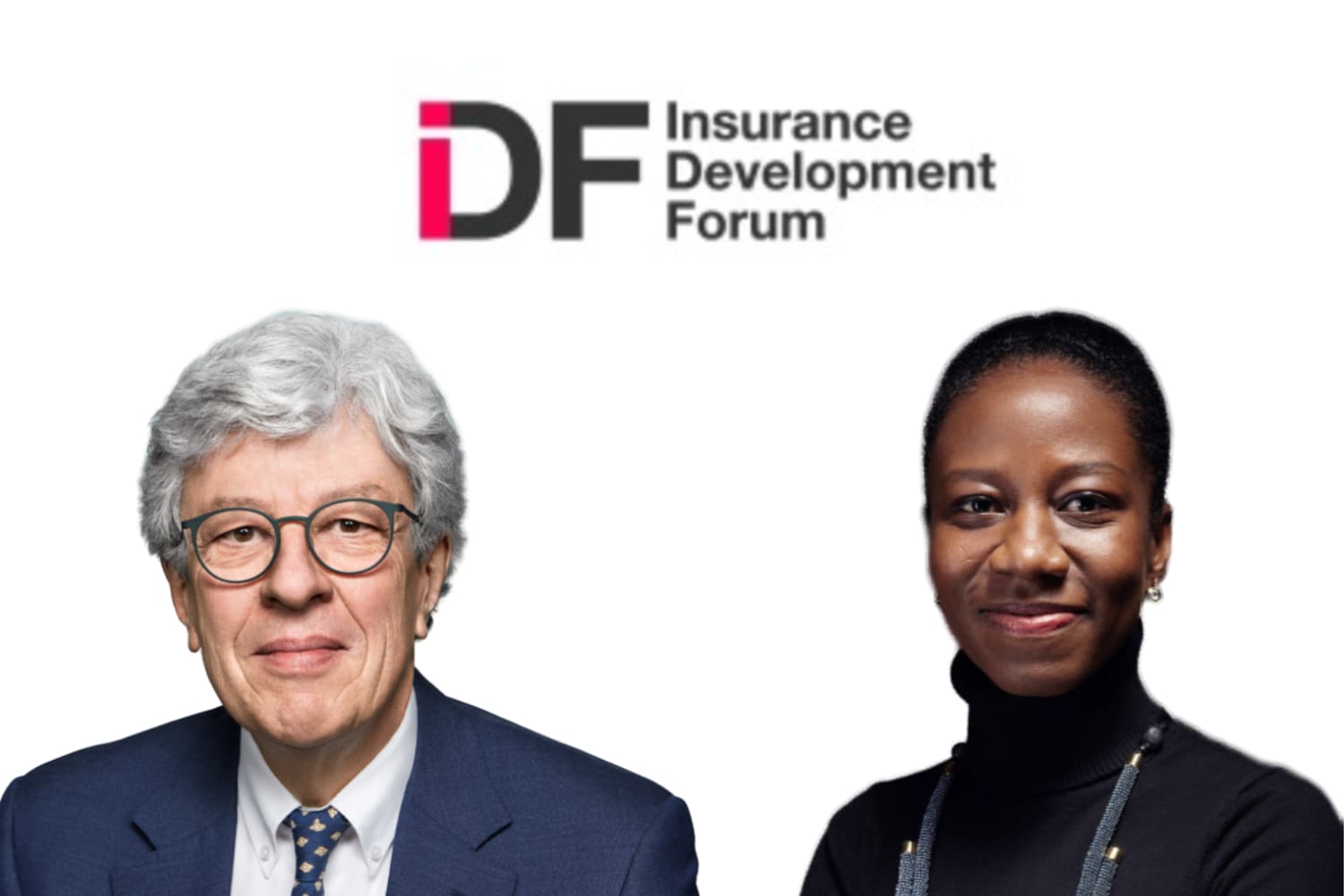There’s an urgent need to bring the voice of insurance to the fore of the climate debate and the industry must work to show its value and find sustainable ways of building resilience against adverse weather and climate events, according to the Insurance Development Forum (IDF).
 As the world meets in the UAE for the 2023 United Nations Climate Change Conference, COP28, we spoke with Michel Liès, Chair of the IDF Steering Committee and Ekhosuehi Iyahen, IDF Secretary General, about the role of the forum and the wider re/insurance industry in addressing the impacts of natural disasters and climate shocks.
As the world meets in the UAE for the 2023 United Nations Climate Change Conference, COP28, we spoke with Michel Liès, Chair of the IDF Steering Committee and Ekhosuehi Iyahen, IDF Secretary General, about the role of the forum and the wider re/insurance industry in addressing the impacts of natural disasters and climate shocks.
While its roots can be traced back to 2013, the IDF was officially launched at the Paris COP21 Climate Summit in 2015 and has continued to expand and evolve as it works to optimise and extend the use of insurance to build greater resilience and protection for those vulnerable to disasters.
Today, members of the IDF Steering Committee represent the world’s largest and most influential insurers, reinsurers, and broking groups, and the IDF working groups cover a range of topics from risk modelling to inclusive insurance.
“The IDF has helped to intensify the debate with the public sector about the contributions the insurance industry can make towards addressing the challenges our planet is currently facing,” said Liès, who is also the Chairman of global insurer Zurich Insurance Group.
“Establishing a strong connection to the public sector is extremely important, and more globally, it’s vital that we strive to show to people and communities outside of the industry what is the added value that insurance can bring to the table,” he added.
Liès explained that now is the time for the risk transfer industry to be less discrete and intensify its contribution to the cause, in part by building on current initiatives and developing new ones, all with a view to increasing ex ante financing.
“In a way, the essence of insurance can be summarised as something which is very simple; prioritize funds toward infrastructure investment and protective measures that aim to safeguard people before an event occurs, rather than after an event has happened.
“I believe we as an industry can effectively convey this message. Because we are paying significant amounts in claims, also as a consequence of the changing climate. We are probably, beside the governments, the industry carrying the highest financial burden,” said Liès.
A key message of the IDF is that countries with greater insurance penetration recover faster economically, and also rebuild with greater resilience to future disasters. But as noted by Liès, it’s also become increasingly important to invest more in infrastructure and resilience before disaster strikes, which is always a matter of when not if.
Liès emphasised that less than 5% of total funding is brought to the table pre-event, and despite the known benefits of ex ante financing, the industry has perhaps focused too much on being there post-event.
“Funding requirements for extreme weather are probably eight times higher today than 20 years ago. And between 2017-2022 humanitarian appeal linked to extreme weather were only 54%, meaning an estimated average shortfall of $30 billion. Only 1.3% of this funding is pre-arranged,” said Liès.
Another important role the insurance sector can play, and which has been intensified by the IDF, is that it can, in a credible manner, put a price tag to the decisions which are either taken or not.
“When we attach a price tag to the equation, it becomes apparent what the impact is of decisions made or not made. And I must say, we are proud to be members of a financial service industry which enjoys a certain trust and respect by those concerned about the future financial state of the planet. But as an insurer, we also understand the costs associated with being ill-prepared to confront some of the consequences,” said Liès.
At this year’s COP event, the IDF will focus on reviewing existing initiatives and building on these and new ones, including supporting the G7 and V20 Global Shield initiative, the Global Resilience Index, the IDF’s Risk Modelling Steering Group and other working groups, as well as its work with the UNDP and The World Bank.
“Earlier in the year, the World Bank announced a comprehensive crisis toolkit to support countries after a disaster. And as part of that, there was explicit reference in terms of the intention to collaborate with the insurance industry and the IDF,” said Iyahen. “We are going to be looking to develop a programme with them aligned with the crisis toolkit. But just generally deepen our programmatic work, in terms of engagements with countries directly.”
Iyahen explained that one of the things COP is promoting more and more is a focus on resilience and adaptation.
“As part of that, the work that we’ve been engaged in, in terms of being concrete, is also trying to be clear to that process of where we see the role of insurance in adaptation and resilience. That means from the risk analytics right through to developing concrete solutions and programmes for countries that match their specific needs,” she said.


